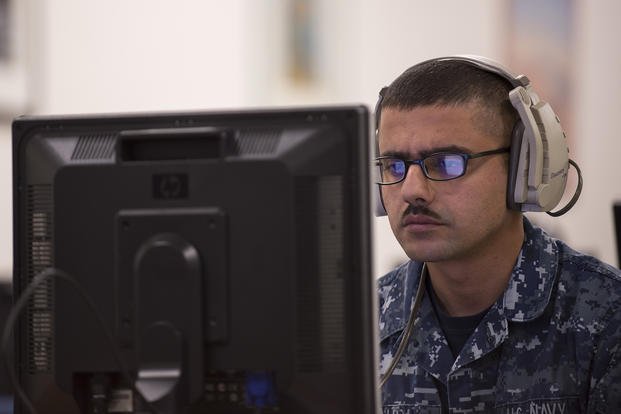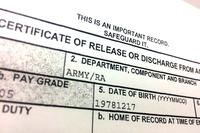Most people will take just the ASVAB. You need to schedule the DLAB (Defense Language Aptitude Battery) before you get to your MEPS (Military Entrance Processing Station). You may take the test only if you're trying to get a MOS/AFSC/rating that specifically requires language training, such as a linguist, cryptology or a signals intelligence MOS. Your recruiter will help you determine whether you need to and can take the DLAB.
The DLAB is by far the strangest test I have ever taken. Most people react similarly. I can't disclose too much about it, one of the reasons being that it is all about a completely fictional language. It starts simply and progressively builds in complexity, and by the end, you are combining several different rules that must be remembered.
If you are going to take the DLAB, here are my suggestions:
- Know your English. If you understand one language well, chances are you can apply that understanding to learning a new language.
- Know your grammar. A similar point to the above. I would emphasize that knowing sentences and how to manipulate them easily is very important. For example, "The chicken came before the egg" and "Before the egg came the chicken" are two sentences with the exact same meaning, but with the words in a different order. The ability to rearrange words within a sentence is important on the DLAB.
- Know how to listen. Actually, I would rate this as the most important skill, as much of the test is given on tape. You can improve your listening by:
- Listening to music -- particularly jazz or classical. Pick out an instrument and follow it.
- Listening intensely to different people's voices. Try to follow not the words they say, but the pitches you hear. Can you draw squiggly lines indicating when their voice goes up or down? If so, that's good.
- Listening to other foreign languages. It's better to listen to one you know nothing about. Do not try to interpret the language, just try to distinguish the different sounds of the language, i.e. accents, connections, syllables, etc.
- Be sure you enjoy solving puzzles. Puzzle-solving skill is emphasized in the DLAB. You will be inferring a lot of information.
Final suggestion: You need to be able to visualize what you say and vocalize what you see. If you can, for example, look at pictures and quickly come up with a brief caption or description of what's going on, then you're on the right track. And if you can imagine a picture of what's going on when you read or hear something, that helps too.
Oh, yes: Do not fall behind. There are plenty of questions on the DLAB, and you will make mistakes. Don't worry, there is room for mistake making. The questions come quickly, so keep up to speed with the tape and clock no matter what, or else you're doomed.
Interested in Joining the Military?
We can put you in touch with recruiters from the different military branches. Learn about the benefits of serving your country, paying for school, military career paths, and more: sign up now and hear from a recruiter near you.












